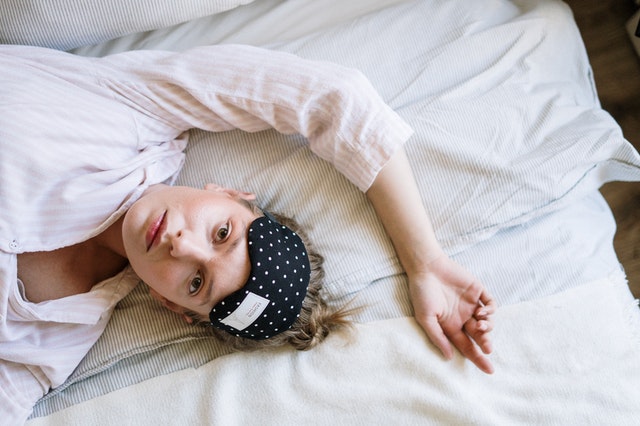
Can You Overdose On Sleeping Pills And What Are Your Addiction Treatment Options?
Between 50 and 70 million Americans suffer from sleep deprivation, and 4 percent of the population turns to medicine in order to get a good night’s sleep. If you have problems sleeping on a regular basis, it’s a sign that something is amiss. It might be as easy as consuming too much coffee or staying up late watching TV, your phone, or other devices. However, it might also be an indication of a medical or psychological issue. But whatever the cause is, sleeping drugs will not fix it in the long run because sleeping medications are, at most, a band-aid solution. At worst, they’re an addictive crutch that can exacerbate sleeplessness over time.
That’s not to say you shouldn’t take medication. Instead, you should assess the advantages against the hazards of using it. Sleeping medications and sleep aids, in general, are most helpful when taken sparingly for short-term conditions like traveling between time zones or recuperating from a medical treatment. To minimize reliance and tolerance, it’s better to take sleeping pills solely on an “as required” basis if you want to use them for a long time.
Table of Contents:
What Is Insomnia?
No matter how exhausted they are, some people have trouble sleeping. Others wake up in the middle of the night and lie awake for hours, keeping a close eye on the clock. The difficulty to fall or stay asleep at night, resulting in unrefreshing or non-restorative sleep, is known as insomnia.
It’s a fairly frequent condition that affects your energy, emotions, and ability to perform throughout the day. Insomnia is thought to be caused by a state of hyperarousal that prevents people from falling or staying asleep. Hyperarousal can be mental or physical, and it can be triggered by a variety of situations and medical conditions. Insomnia is characterized by the quality of your sleep and how you feel after sleeping, not by the number of hours you sleep or how quickly you doze off.
What Causes Insomnia?
Insomnia can be caused by a variety of factors, and in many cases, multiple factors are involved. It can be caused by stress, irregular sleep schedules, lifestyle, mental health disorders, physical illness and pain, medications, neurological problems, and sleep disorders.
On top of this, insomnia can also induce or exacerbate other health problems, resulting in a complicated chain of cause-and-effect for insomnia. Stress, anxiety, nightmares, big life changes, physical discomfort, and an overheated room can all contribute to sleep disruption.

Types of Insomnia
Acute insomnia is defined as short-term insomnia that can last anywhere from a few days to a few weeks. It is the most common type of sleep deprivation and often occurs after a significant life event.
Chronic insomnia is an issue that lasts a long time, sometimes for the rest of a person’s life. This kind of insomnia affects about 10% of the population. It might continue for months at a time before disappearing, or it can afflict a person intermittently for years. Chronic insomnia can lead to major health complications if left untreated.
Can You Overdose On Sleeping Pills?
Due to the lower chance of someone overdosing on the newer versions, modern sleep drugs are not as potent as prior generations. Despite the many safeguards put in place, the answer to the question “Can you overdose on sleeping pills?” is yes.
What Happens During a Sleeping Pill Overdose?
When a person is overdosed on a sleeping pill, they will have trouble functioning as they normally do. They will be overly sleepy and possibly have trouble breathing. The person will eventually feel so sleepy that they fall asleep.
If it’s impossible to wake the person, help should be called immediately, as this is one of the final stages of a sleeping pill overdose.
The Most Addictive Types of Sleeping Pills
Since the 1960s, benzodiazepines have been widely prescribed as sleep aids and are also used to treat anxiety, restlessness, and muscle spasms. They act on the central nervous system by depressing brain activity and producing sedation. Some commonly prescribed benzodiazepines include Diazepam, Estazolam, Flurazepam, and Temazepam.
Z-drugs such as zaleplon, zolpidem, and zopiclone assist with sleep but are not intended for long-term use. These medications can cause next-day drowsiness and, in rare cases, dangerous sleep behaviors. Common examples include Ambien, Lunesta, Imovane, Sonata, and Intermezzo.
Over-the-counter sleep aids contain antihistamines, which cause sleepiness as a side effect rather than treating sleep itself. Common OTC sleep aids include Unisom, ZzzQuil, Simply Sleep, Kirkland Sleep Aid, and Melatonin.
Sleeping Pills Overdose Symptoms and Side Effects
At the correct dosage, sleeping pills are generally safe, but in large doses the difference between drowsy and sedated becomes dangerous. An overdose occurs when a person becomes unable to function normally.
Irregular or excessively slow breathing should never be ignored, as it is a sign of overdose. If a person cannot be awakened, their life is in serious danger.
In addition to overdose risk, sleeping pills may cause side effects even when taken as prescribed. These include dry mouth, constipation, dizziness, lethargy, memory problems, shakiness, headaches, appetite changes, weakness, and difficulty paying attention.
Signs and Symptoms of Sleeping Pills Addiction
Some of the most common signs of sleeping pill addiction include uncoordinated movements, an unsteady gait, impaired memory, slurred speech, unusual euphoria, and difficulty focusing.

Health Concerns of Prolonged Sleeping Pill Use

Long-term or excessive use increases the likelihood of adverse health effects. These medications have been linked to dizziness, sleepwalking, hallucinations, headaches, nausea, vomiting, daytime drowsiness, depression, impaired motor skills, and lack of coordination.
Medications such as Ambien, Sonata, and Lunesta have been associated with an increased risk of falls, injuries, and car accidents. Studies also suggest that daily use of sleeping pills may be linked to an increased risk of cancer. When combined with other prescription drugs, sleep aids may dangerously lower blood pressure, heart rate, and breathing.
Sleeping Pill Addiction Treatment Options
When dependence develops, detox becomes necessary. Sleeping pill detox is the process of removing accumulated chemicals from the body and typically takes three to seven days. Detox should always be supervised by trained medical professionals, as unsupervised detox significantly increases relapse risk.
Inpatient treatment may benefit individuals who have taken sleeping pills in high doses or for extended periods. Inpatient rehab removes access to medications while teaching healthier sleep habits and coping skills. Programs typically last between 28 and 90 days.
Outpatient rehab allows individuals to continue daily responsibilities while attending scheduled therapy and counseling sessions. These programs focus on education, support, and relapse prevention.
Sleeping Pill Withdrawal Duration and Symptoms
Withdrawal duration and severity vary based on usage history, dosage, and individual factors. Symptoms may last several weeks and can include insomnia, anxiety, panic attacks, irritability, excessive sweating, sadness, muscle tension, nausea, vomiting, and, in rare cases, seizures.
Private in-home detox and addiction treatment services
Elite Home Detox has designed in-home detox and addiction treatment services for individuals who require exceptional care and discretion. Our medically managed programs allow patients to detox safely in the privacy and comfort of their own home.
FAQs
Can you take sleeping pills permanently?
Long-term use of sleeping tablets is not recommended for insomnia or other sleep problems. They have the potential to have serious health implications, but they also do not provide a solution to the problem.
Is it healthy to take sleeping pills every night?
Patients should utilize sleep aids every night for two to four weeks, according to physicians. If you require assistance for a longer amount of time, it is recommended that you take the medication just as necessary, such as three evenings per week. It is not healthy to take them every night, especially in the long run.
How quickly can you get addicted to sleeping pills?
A dependency on sleeping pills can happen in as little as 7 days.
What happens when stopping sleeping pills?
Former sleeping pill users will feel physical and psychological anguish during withdrawal. Individuals have different withdrawal symptoms when they stop using sleeping drugs. Some withdrawal symptoms may include seizures, insomnia, body spasms, depression, confusion, sweating, hand tremors, nausea, vomiting, irritability, anxiety, drug cravings, and other symptoms.
How long does it take to get sleeping pills out of the system?
It can be found in urine for up to 48 hours and in blood for up to 20 hours. It can be detected for up to 5 weeks using hair testing.
What are the side effects of taking sleeping pills daily?
Some potential side effects of taking sleeping pills daily may include dizziness, lightheadedness, headaches, gastrointestinal problems, drowsiness, allergic reaction, sleep-related behaviors and memory issues.
How can I sleep without sleeping pills?
There are a few things you can try to help you fall asleep without using sleeping pills.
- A soothing nighttime ritual. At least one hour before bedtime, turn off all technology and instead spend the time doing things that are peaceful and soothing like reading, moderate yoga, or listening to soft music. Reduce the quantity of light in your room in order to naturally raise your melatonin concentrations.
- Breathing from the abdomen. The majority of us do not breathe deeply enough and it can truly improve the portion of our neural system that governs relaxation when we breathe deeply and profoundly, engaging not just the chest but also the abdomen, lower back, and ribs. Close your eyes and attempt to take slow, deep breaths, each one deeper than the last. Inhale deeply through your nose and exhale deeply through your mouth. Try to exhale for a bit longer than you inhale the air.
- Progressive muscular relaxation is not as difficult as it appears. Make yourself comfortable by lying down. Tense your muscles as much as you can, starting with your feet. Hold until a count of ten before relaxing. Work your way up to the top of your head, doing this for each muscle group in your body.



 Harsh Brar is a Board Certified Family Nurse Practitioner specializing in addiction medicine and pain management. He holds a Master of Science in Nursing from Samuel Merritt University and ensures all Elite Home Detox clinical content aligns with current medical safety standards.
Harsh Brar is a Board Certified Family Nurse Practitioner specializing in addiction medicine and pain management. He holds a Master of Science in Nursing from Samuel Merritt University and ensures all Elite Home Detox clinical content aligns with current medical safety standards.